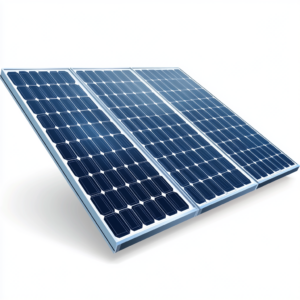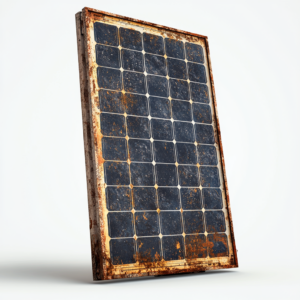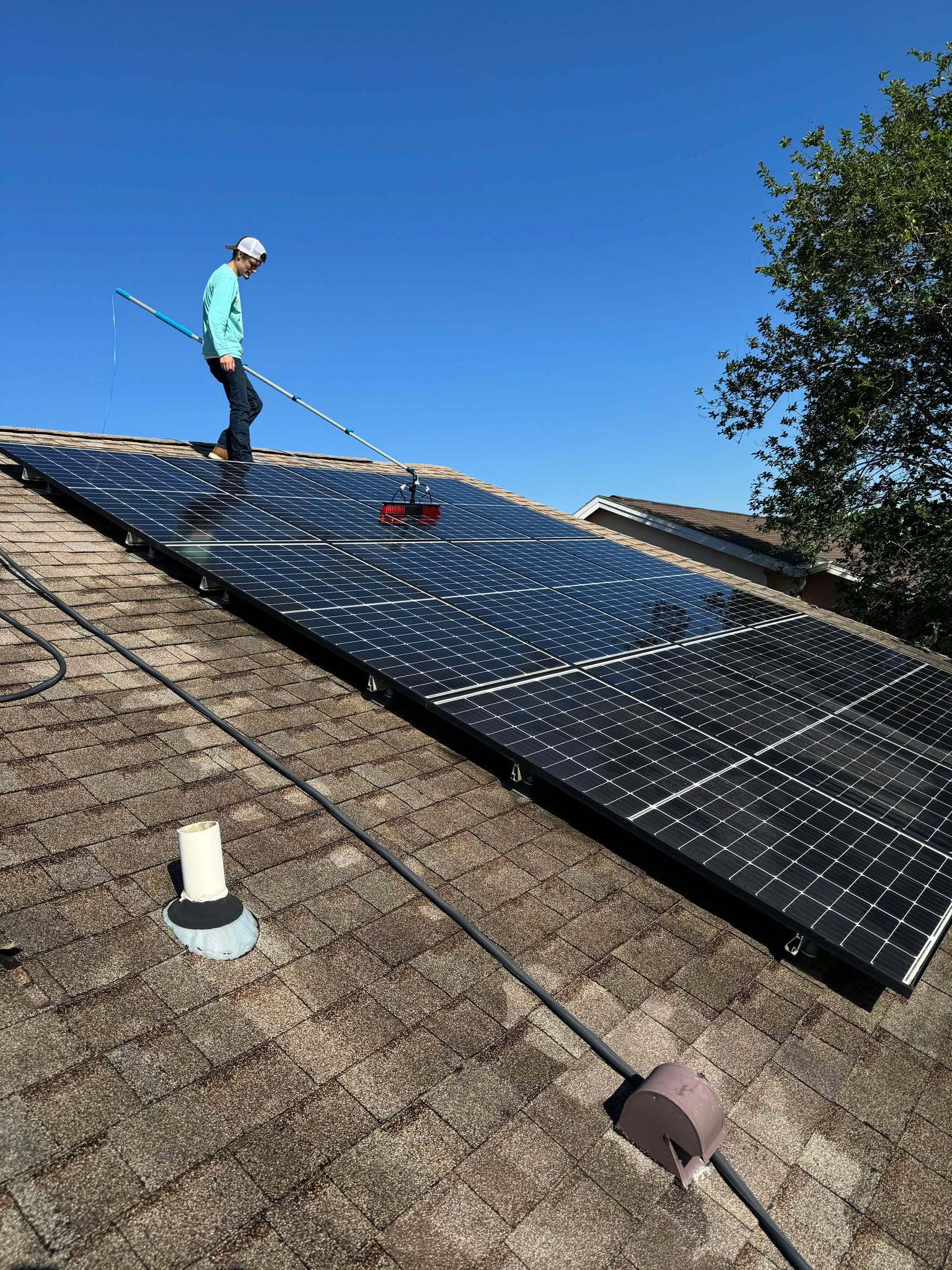Florida being known as the Sunshine State, makes it a great place for solar energy. However, the state’s climate also means your solar panels need special attention. As more and more Floridians start using solar panels in 2025 and beyond, it’s crucial to know how often to clean your panels. Did you know that dirty solar panels can lose up to 25% of their power? Keeping them clean ensures you get the most out of your solar investment. At Jeffries Wash n Stuff, we work year-round to help your panels stay in top shape.

How does Florida’s Climate Affect your Solar Panels?
The weather in Florida, with its high humidity and frequent rainfall, can lead to challenges like dirt and grime buildup on solar panels. Coastal areas face additional issues with salty spray, while rural and wooded areas deal with pollen and debris. Bird droppings and storm debris also commonly affect solar panels, and shaded areas can lead to algae growth.
Factors to consider for cleaning frequency:
- Local weather conditions: If you experience frequent storms or heavy pollen seasons, you may need to clean your panels more often.
- Visible dirt, grime, or streaks on panels
- Panel orientation: Panels facing south may collect more dust than those facing east or west.
- Decrease in energy output: Regularly check your solar system production output data, when you see a consistent drop in production it may be time to have your panels cleaned.
- Higher electricity bills despite sunny weather

How often should Solar Panels be cleaned:
Generally, solar panels in Florida should be cleaned 1-3 times a year. In rural or wooded areas, cleaning every 4-12 months helps manage pollen and debris. Urban areas may require cleaning 1-2 times a year, especially after long dry spells. In coastal areas, more frequent cleaning every 3-4 months is recommended due to salt exposure.
Several factors influence how often you should clean your solar panels, including your proximity to the coast, the amount of surrounding vegetation, and the activity of local wildlife. The angle of your panels and recent weather conditions, such as droughts or heavy storms, also play a role in determining cleaning needs.

Important points when having your Solar Panels Cleaned:
- Use proper cleaning methods: Always use a soft-bristled brush and De-Ionized Water to clean your panels.
- Time of Day: Clean solar panels in the early morning or late evening to avoid direct sunlight.
- Avoid harsh chemicals: Do not use abrasive cleaners or solvents as they can damage the panel surface and void your warranty.
- Consider professional cleaning: For large solar arrays or if you have concerns about cleaning safely, reach out to Jeffries Wash n Stuff for a free quote.
Should you hire a PRO?
Deciding whether to clean your solar panels yourself or hire a professional depends on several factors. While DIY cleaning might seem like a good way to save money, it often requires investing in the right equipment, and it can be time-consuming and physically demanding. For homes with elevated or hard-to-reach panels, safety is also a significant concern—you want to avoid the risk of falls and injuries.
With Jeffries Wash n Stuff, professional cleaning is both affordable and hassle-free. Our team specializes in solar panel maintenance, ensuring a thorough cleaning without the stress. We handle the entire process, so you save time and energy. The great thing about Florida is that the frequent rain helps keep your panels relatively clean. However, our semi-annual check-ups ensure that any stubborn dirt or grime is fully removed. Think of it like a visit to the dentist—regular check-ups help prevent major issues down the road. Jeffries Wash n Stuff bi-annual service keeps your panels in top condition, so your system stays efficient year-round without any extra effort from you.
What should I do between cleanings?
To maintain efficiency, regularly inspect your solar panels for dirt and damage, and trim any nearby trees or vegetation that might block sunlight. Installing critter guards can prevent animals from nesting near your panels, and monitoring your system’s output can help you spot any unexpected drops in performance.

